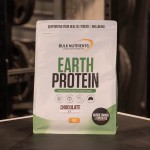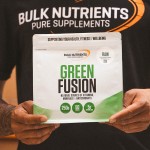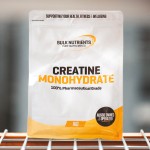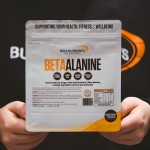Essential Nutrition Considerations for Vegan Athletes

The growth of plant-based diets
Over the past decade, veganism has become a far more viable, accepted, and popular dietary approach. With a helping hand from substantial social media promotion and big-budget documentaries like The Game Changers, coupled with an onslaught of new vegan and meat-free food options (even plant-based whoppers at Hungry Jack’s!), “turning vegan” is now commonplace.
This article is not designed to debate the potential health, ethical or environmental benefits of a vegan diet, instead, it is to arm those that have chosen to go vegan with the necessary information to prevent them from missing out on key nutrients while also supporting athletic performance.
Overall, veganism does create challenges that must be accounted for when designing a diet comprising all key nutrients. Common challenges include protein deficiency, lack of omega-3 fatty acids, B12, vitamin D, and iron. The good news? With a strategic selection of food sources and supplements, the nutrition needs of most healthy athletic individuals can be satisfied.
Considerations for protein, carbohydrate and fat intake as a vegan
There has been a long-standing debate whether vegans require a higher absolute protein intake than their omnivorous counterparts. According to most observational research, vegan athletes do appear to consume less protein overall than omnivores and vegetarians. The protein issue gets even muddier since plant-based protein sources are incomplete proteins, meaning they lack the full spectrum of essential amino acids (and are low in Branched Chain Amino Acids / BCAAs) required to build a new muscle protein.
As animal proteins possess all of the essential amino acids, when comparing on a gram per gram basis, animal proteins are more anabolic than plant-based proteins. Therefore, vegans must pay more attention to protein quality and source in contrast to omnivores, as a range of plant-based proteins combined will be required to meet the total protein and essential amino acid intake necessary for optimising muscle maintenance, repair, and growth.
Meeting these protein and amino acid requirements through eating plant-based whole foods (e.g., cereals, lentils, beans, tofu) may be a challenge. In that case, plant-based protein supplements such as soy, pea and rice proteins can be great ones to try in combination, with each containing a different profile of amino acids, albeit incomplete. This is why Bulk Nutrients made Earth Protein, the combination of pea and rice proteins delivers a full balanced spectrum of 18 amino acids.
As a final note, I do think it’s wise to consume a slightly higher protein intake per kilogram of body mass as a vegan compared to an omnivore, to account for the reduced anabolic potential of plant-based proteins. Although this isn’t based on scientific trials, I think a 25% higher protein intake is wise for a vegan. For example, if a 100 kg male omnivore was consuming 200 g of protein per day, a wise vegan should consume ~250 g per day, to reach a similar anabolic and recovery potential.
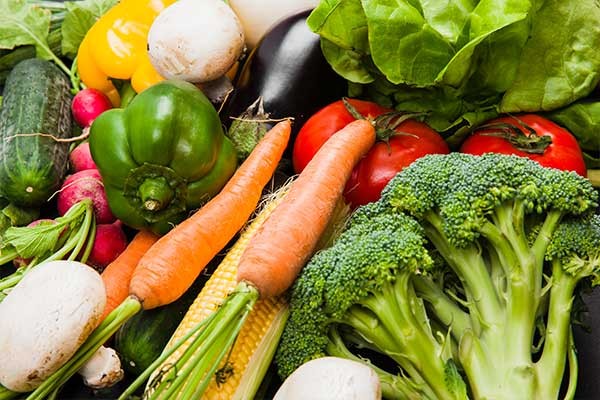
Vegan diets are rich in carbohydrates and fibre
A vegan diet is typically very high in carbohydrates. Considering carbohydrates are often rich in fibre, antioxidants and phytochemicals, it is no surprise that beneficial health effects are sometimes observed when transitioning to a vegan eating approach, assuming your diet quality was poor previously and was low in fruit and vegetable intake.
A high carbohydrate diet, as seen in most vegan cases, can also be beneficial for athletes by supporting exercise performance, and recovery from high training volumes. The high carbohydrate vegan diet can, however, be a double-edged sword.
Due to the high fibre content and lectins present in grains, beans, and potatoes, high consumption of these carbohydrate sources can lead to significant appetite suppression and bloating. This might be valuable during a fat loss period where calories are quite restricted and hunger is difficult to manage, however for some athletes, it may restrict their ability to consume adequate calories to either grow muscle or optimise exercise performance and recovery. In the latter scenario, it is likely wise to consume lower-fibre carbohydrate sources such as rice, noodles, and pasta, in place of oats, beans, lentils and whole grains.
Vegan diets are often high in omega 6 fats but low in omega 3 fats
Vegan diets while high in carbohydrates are often low in dietary fat intake. This is not typically a bad thing in most cases, with some research suggesting that a low-fat diet is associated with improved cardiovascular health and reduced risk of type 2 diabetes and cancer.
However, vegans do typically have a higher omega 6 fat intake, with a lower omega 3 fat intake compared to most omnivores. This may be because for some alarm, given the fact that many researchers have suggested the optimal ratio of omega 6 to omega 3 fats is 4:1 or lower, yet in most cases, due to the lack of consumption of fish products and eggs, it is common for a vegan to have a ratio of omega 6 to omega 3 over 10:1. Why does this matter? Well, a lower ratio is associated with reduced inflammation, cancer cell growth, and a lower probability of cardiovascular disease and premature death.
So which supplements should I consider taking as a vegan?
Omega-3 fats are important for the body and the brain
As already mentioned, vegans often have a lower than ideal intake of omega 3 fats. The long-chain omega 3 fatty acids are eicosapentaenoic acid (EPA) and docosahexaenoic acid (DHA), and they are reported to exert many of the primary health benefits of omega 3 fats. One option as a vegan may be to consume supplemental Alpha Lipoic Acid (ALA), as this has been shown to increase levels of EPA in the blood. Microalgae oil is also rich in EPA and DHA, and while not a common supplement, may be worth looking into. If supplementing is not preferred, high consumption of flax and chia seeds and walnuts may be necessary, however, omega 3 intake for optimal health may be difficult to achieve for a vegan using foods alone.
Avoid a Vitamin B12 deficiency with a supplement
As vegans don’t consume animal-sourced products, they are put at risk of developing Vitamin B12 deficiency. Insufficient intake of B12 can lead to impairments in nervous system function, DNA synthesis, and even risk neurological damage if not corrected.
The prevalence of B12 deficiency in vegans is quite staggering, with one cohort study indicating that approximately 50% of vegans were deficient. As a vegan, B12 is often only consumed in fortified breakfast cereals, however, most often, this provides an inadequate intake with correction of the deficiency only occurring with supplementation. As a general rule built off previous research, vegans should consume 6 micrograms of Vitamin B12 per day to prevent any risk of deficiency.
Iron is key for energy and the ability to recover
In general, vegans consume approximately the same iron intakes as omnivores. However, non-haem iron (the iron found in plant sources) is less bioavailable than haem iron (animal sourced iron), which means vegans may also be at risk of iron deficiency.
Lack of iron can lead to a decrease in red blood cells, leading to tiredness, weakness and fatigue, and if that wasn’t enough, can also reduce endurance capacity and the ability to recover from training. As some research has suggested vegans may need 1.8x the iron intake of omnivores, it may be wise to consume iron in supplemental form to reach a daily intake of 14 mg for males, and 33 mg for females (yes females need more iron than males).
Vitamin D is important for bone, muscle and mental health
Vitamin D is an important vitamin required for calcium absorption and muscle and bone health, among other important physiological processes including athletic performance.
Humans can, in fact, synthesise some Vitamin D from sunlight, however in terms of food sources, most will come in the form of animal products. While Vitamin D deficiency in vegans can often be avoided with ample daily sunlight, one’s risk of deficiency increases substantially if consuming a vegan diet while not getting daily sun exposure.
Fortunately, there are now vegan-friendly Vitamin D supplements available for those who live in low sunlight areas or live low sunlight lifestyles. Most supplemental doses offer 200-1000IU per serving, which appear to be sufficient with daily consumption.
Supplements for sports performance
Creatine monohydrate
Vegan diets often result in a depletion of muscle creatine stores, due to creatine mostly being found in meat, fish and poultry. As has been discussed on this blog previously, creatine can improve high-intensity exercise performance, while enhancing strength and muscle gains. A strong case for creatine supplementation for vegans fits nicely with the observation that creatine supplementation appears to be most beneficial for individuals with low pre-existing creatine stores, such as vegans.
Creatine monohydrate is a wise supplement choice for an athletic vegan, which will improve their adaptations to training, including increasing muscle strength and hypertrophy. For simplicity, I recommend 5 g per day of creatine monohydrate consumed over many months (or as long as you’re training!).
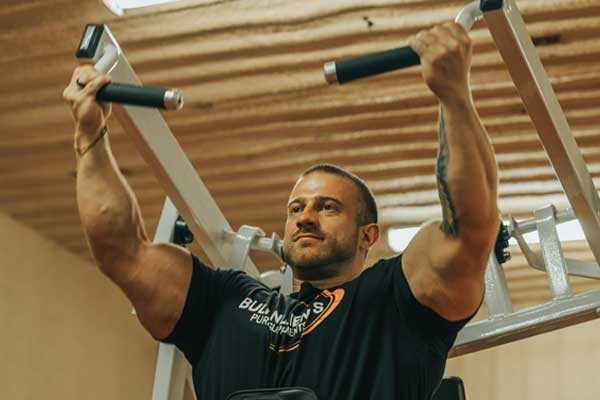
Beta-alanine
Like creatine, vegans also have low levels of muscle carnosine compared to omnivores. As beta-alanine is the precursor to muscle carnosine, it would be wise to supplement with beta-alanine as well. High levels of muscle carnosine have been shown to improve high-intensity performance and reduce fatigue, due to the buffering action of muscle carnosine. In basic terms, a high level of muscle carnosine can allow you to maintain harder training efforts, for longer.
Dosage wise to achieve these benefits, I recommend 4-6 g of beta-alanine per day consumed for at least 2-4 weeks. It is also important to note that this dosage must be taken chronically over some weeks before it is likely to be effective. Intermittently supplementing with beta-alanine with days on and days off will seldom achieve saturation of muscle carnosine stores, nor will it improve performance.
There you have it! My suggestions on nutrients to ensure you’re getting through your diet every day for good health, energy and performance in training. For further information on supplements for plant-based diets feel free to get in touch with the Bulk Nutrients Customer Service team. They’re ready to help you on Live Chat, email and the phone!
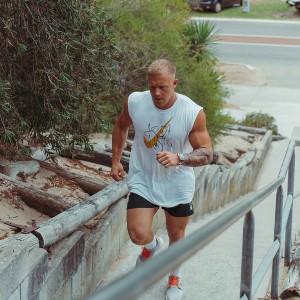
Jackson Peos has completed a PhD at the University of Western Australia, and has a straightforward approach to nutrition and supplements.
He's completed his BSc in Sports Science, and Exercise & Health, and his BSc (Hons) in Exercise Physiology.
More about Jackson PeosReferences:
- Clarys P, Deliens T, Huybrechts I, Deriemaeker P, Vanaelst B, De Keyzer W, et al. Comparison of nutritional quality of the vegan, vegetarian, semi-vegetarian, pesco-vegetarian and omnivorous diet. Nutrients. 2014;6(3):1318–1332.
- Craig WJ. Health effects of vegan diets. Am J Clin Nutr. 2009;89(5):1627S–1633S.
- Fuhrman J, Ferreri DM. Fueling the vegetarian (vegan) athlete. Curr Sports Med Rep. 2010;9(4):233–241.
- Blanco K, Enrione EB. Intake of vitamin D, calcium and phosphorus in vegans. J Acad Nutr Diet. 2012;112:A92–2.
- Woo KS, Kwok CYT, Celermajer DS. Vegan diet, subnormal vitamin B-12 status and cardiovascular health. Nutrients. 2014;6(8):3259–3273.
- Young VR, Pellett PL. Plant proteins in relation to human protein and amino acid nutrition. Am J Clin Nutr. 1994;59(5):1203S.
- Craig WJ, Mangels AR. Position of the American dietetic association: vegetarian diets. J Am Diet Assoc. 2009;109(7):1266–1282.
- Van Vliet S, Burd NA, Van Loon LJ. The skeletal muscle anabolic response to: plant-versus animal-based protein consumption. J Nutr. 2015;145(9):1981–1991.
- Kniskern MA, Johnston CS. Protein dietary reference intakes may be inadequate for vegetarians if low amounts of animal protein are consumed. Nutrition. 2011;27(6):727–730.
- McEvoy CT, Temple N. Woodside JV. Vegetarian diets, low- meat diets and health: a review. 2012;15(12):2287–2294.
- Simopoulos AP. The omega- 6/ omega- 3 fatty acid ratio, genetic variation, and cardiovascular disease. Asia Pac J Clin Nutr. 2008;17(Suppl 1):131.
- Rogerson D. (2017). Vegan diets: practical advice for athletes and exercisers. Journal of the International Society of Sports Nutrition, 14, 36.
Related Blogs
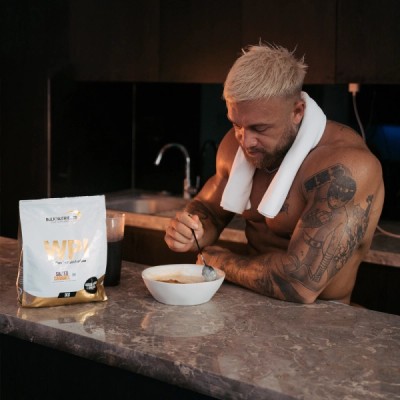
Catering for athletes: Demographic and Psychological Factors
Posted by Max Cuneo
Estimated reading time: 10 minutes

Essential Supplements for High Performing Athletes
Posted by Jackson Peos
Estimated reading time: 10 minutes
